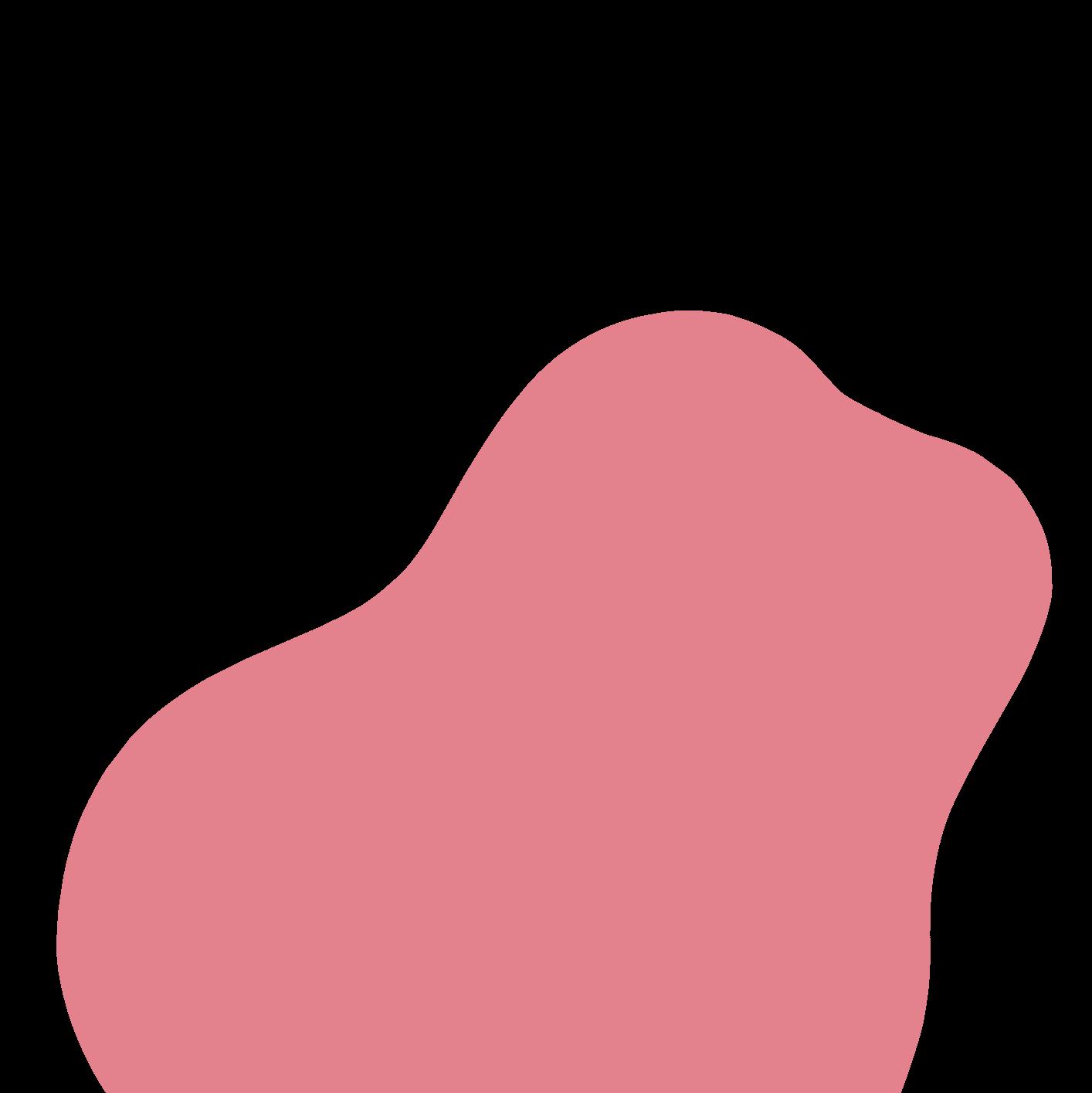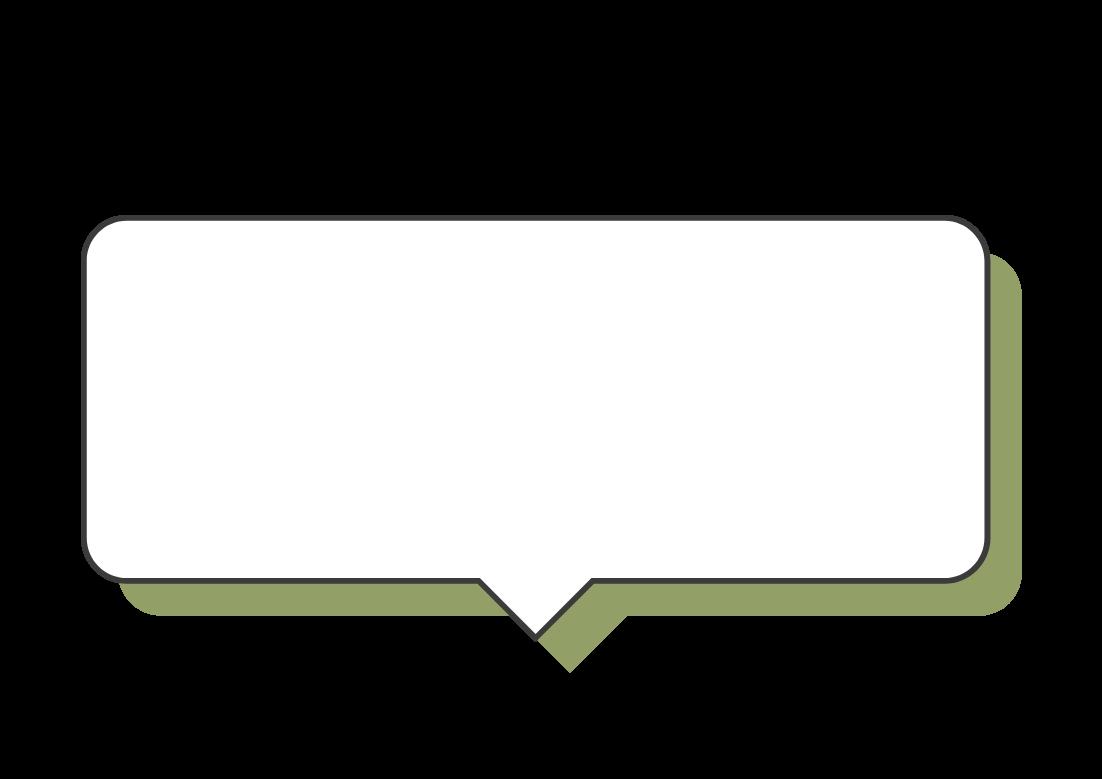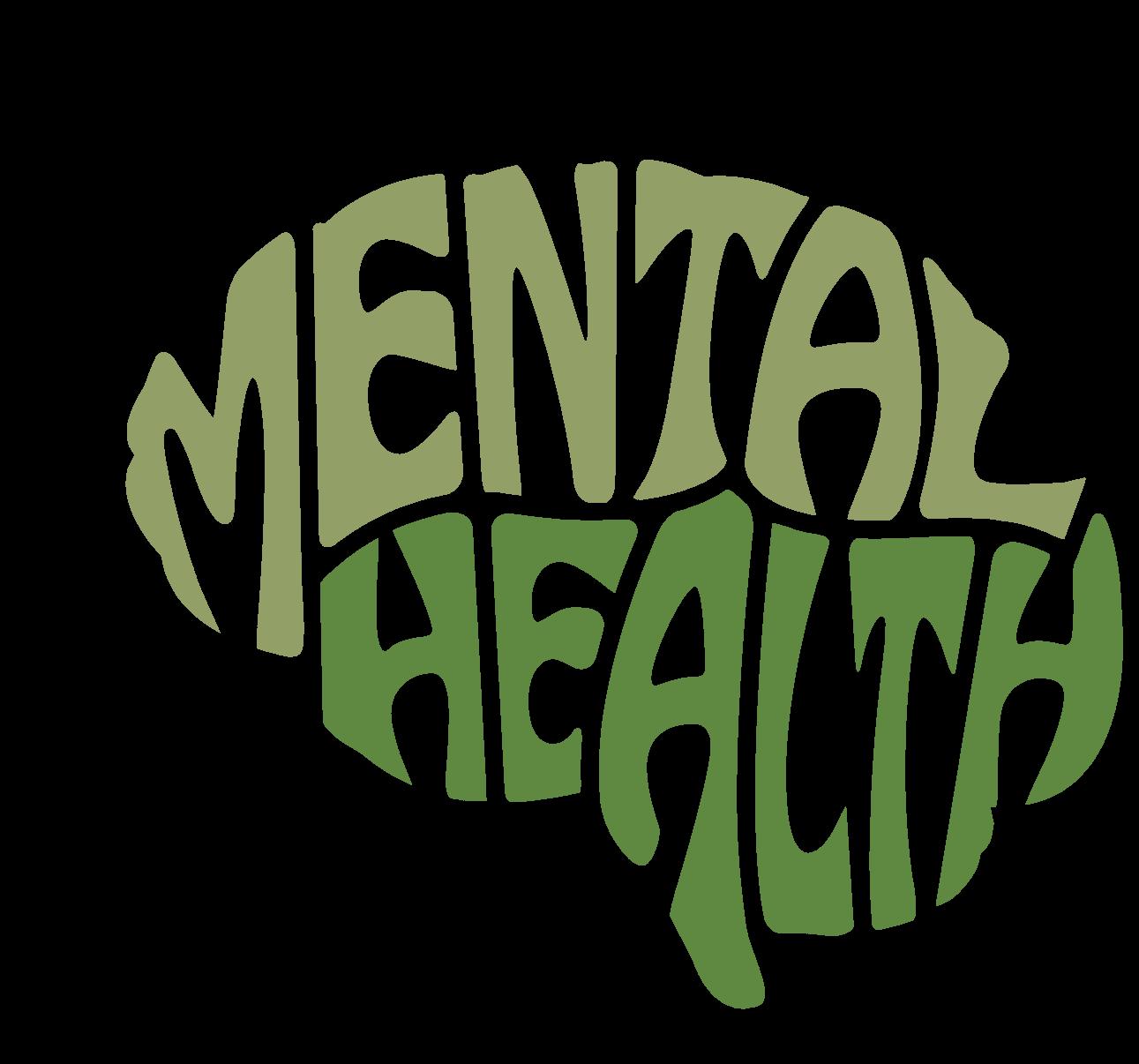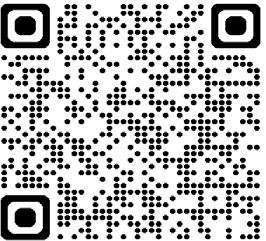

WELL-BEING ISSUE


Umeå Universitet
The Umeå School of Business, Economics and Statistics student association, HHUS is a volunteer association for all students at the Umeå School of Business, Economics and Statistics. We are a non-political, non-union, and non-religious association, with the purpose of handling and supporting our members’ interests. We work towards good contact between our members, our school, and Businesses.













CONTRIBUTORS

Felicia Fors Editor in Chief HHUS
Nikan Sinaiee President HHUS
Mats Bergman Principal USBE
Havin Colak Head of Business HHUS
CONTRIBUTORS







Rickard Lindberg Career center
Madison Quigley Vice President HHUS
Eric Back Head of Education HHUS
Emma Andström Head of Finance HHUS

Felicia Fors Editor in Chief HHUS ekbladet@hhus.se
Note Editor in Chief´s
Dear Readers,
I’m Felicia, this years Editor-in-Chief of Ekbladet. I’m excited to make this a fantastic year and will do my best to ensure Ekbladet brings you valuable and engaging content. Now, let’s dive into the theme for our first issue of the year! Well-being is something we often hear people talk about, but what does it really mean? For some, it’s about physical health - exercise, nutrition, and feeling strong - while for others, it’s about mental balance - reducing stress, setting boundaries, and creating a more sustainable daily life.
Even though well-being can mean different things to each of us, I believe it’s something most people strive for. But in a world where performance and efficiency often take center stage, it’s easy to lose ourselves in the rush to keep up with everything.
As students, we always have something on our plates. Lectures, group projects, part-time jobs, social activities, and workouts—all of it has to fit into our already packed schedules. It’s easy to feel overwhelmed and inadequate. I’ve personally experienced how difficult it can be to balance ambition and recovery—to want to excel in studies, fitness, and social life all at once. But I’ve also realized that well-being isn’t about doing everything, but about doing the right things for yourself and what makes you feel good.
In this first issue of the year, we highlight the importance of prioritizing well-being—both physically and mentally. We explore how to build a healthy lifestyle without constantly feeling pressured, how to manage stress, and how to establish small daily routines that make a big difference. It’s not always about following a strict schedule, but rather about listening to your body and mind.
For me personally, training has always been a crucial part of my life—not just for my physical health, but for my mental well-being as well. It’s where I recharge, gather energy, and feel my strongest. Learning to take breaks, appreciate the small moments in life, and understand that success isn’t measured by how much we do—but by how we feel—has been invaluable.
In this issue, you’ll find inspiring stories, valuable advice, and practical tips to strengthen both body and mind. Whether you’re looking for motivation to start working out, need strategies for managing stress, or simply want a reminder that it’s okay to slow down—I hope you find something that resonates with you.
So take a moment for yourself, sit back, and let’s explore what well-being truly means.
Best wishes Editor in



Mr president´s Collumn
Spring is finally sneaking up on us, slowly but surely. After months of grey skies and cold winds, it feels like Tvistevägen is coming back to life. The first rays of sunshine hit Ålidhem, and we can finally replace our Vitamin D-pills with sunbeds. For those of us who longed for the light, spring is more than a season - it’s a reminder that everything goes in cycles, that every winter is temporary, and that there’s always a new beginning to look forward to.
The year is 2025 and we have a new beginning in HHUS. A completely new management and board that strives to keep up the great work of the previous years. We in HHUS strive to be including, developing and rewarding towards our members, because ensuring member value is our entire purpose!
I am Nikan, your new President and I promise you to do everything in my power to make your time as a student as great as possible!
We all know that our time as students is filled with all these aspects of life: challenges, setbacks, happiness, anxiety, and stress. But I believe each part has its function and plays its role in our character. It’s our experiences that shape who we are, and who we become. As a wise friend of mine once told me, these experiences become knowledge that we can use as tools, and in the end, “we have all the tools in the toolbox”.

Nikan Sinaiee President HHUS president@hhus.se
Also I want to encourage you to be proud of yourself. We often compare our accomplishments to others and forget how far we have come ourselves. I usually refer to the quote “Comparison is the thief of joy”. There are times when I catch myself comparing myself to others, without being appreciative for what I have and what I have achieved. I think that the 12 year old Nikan who jumped around with his friends in Porsö Centrum would be proud if he looked into the future today, and I encourage you guys to compare yourself with who you were yesterday and not with others.
Kind regards President





Mats Bergman
Principal USBE mats.bergman@umu.se

Collumn Principal´s
Well-being, the theme of this issue, is closely linked to good health and well-being, the third of the UN’s sustainable development goals. I believe few of our students have missed that Umeå School of Business, Economics and Statistics (or USBE) focuses on sustainability. However, it may be less known that a lot of our research centers on health and well-being. When the journal database Scopus classifies our scientific publications according to the 17 sustainable development goals, health and well-being is actually the goal where we, by far, have the largest number of contributions.
Above all, Statistics – a unit within USBE – has close collaboration with researchers at the medical faculty. Research on, for example, stroke, surgery, rehabilitation after sports injuries, or aging and dementia generates data that needs to be analyzed statistically. Depending on the type of measurement being done, huge amounts of data can be generated. Research on health and well-being ranges from core medical research to questions bordering on or within the social sciences. Two examples are health inequality, and how lifetime income is affected by whether the individual starts their career in an urban or rural location.
Within Economics, there is also research on health and well-being. Examples include drug (or pharmaceuticals) pricing, competition in the pharmacy market, and pandemic preparedness. Those who study a master’s in economics can choose to specialize in health economics and will then be studying the third term at the Department for Epidemiology and Global Health.
Business Administration also conducts research related to healthcare and health. This can, for example, involve decision-making in intensive care units or how staff members cooperate at primary care centers. That much of our research is related to health-
care and health is perhaps natural, given that we use more than a tenth of GDP for healthcare. Healthcare costs a lot – and then economic, managerial and statistical research on healthcare is also needed.
Some of my own research has dealt with how society should balance costs against health benefits and how we can afford the increasingly expensive but also increasingly effective pharmaceuticals that are being developed. Can we pay several million kronor per year for a single patient’s pills? Can we refrain from paying millions of kronor for a drug that means the difference between life and death? It may seem harsh to say no for economic reasons, but there is always an alternative cost. What if we can save many more lives by hiring doctors and nurses at the cost of a medicine that would have saved one life?
I also get the opportunity to practice what I have learned in my research outside the university. In the Pharmaceutical Benefits Board, I get to influence which medicines Sweden chooses to subsidize and which are too expensive, in relation to the benefit they provide. The board faces difficult trade-offs where medical, economic, and legal expertise must be combined to make decisions that follow the ethical values of healthcare. In the board, it feels very concrete that I, in my professional life, must have a responsible approach. Taking part of the board meetings makes me feel that USBE made the right decision when we settled for the six core competencies in focus for our educations – and when we put responsible approach right in the middle.

Rickard´s Column
Networking and sources of input and learning in various ways
At the end of January we (Umeå School of Business, Economics and Statistics) arranged our annual alumni event in Stockholm (the largest proportion of graduating students end up to starting their career there (in a bit of competition with Umeå some years)).
The event has 60 seats and attracts alumni ranging from fresh graduates to those that graduated late 80’s (outliers even earlier than that). The theme we set for this year was “To lead corporations, teams and oneself” where 3 alumni and one of our researchers gave short speeches on the topic with different perspectives. They also where clearly differentiated in terms of experience with professional experience ranging from 4 to 33 years of experience. Among participants the range was 8 month to 50 years of experience.
This is a good event to get updates where alumni work and also create some contacts to open up for guest lectures etc. Of course we also rounded of with a an afterwork for some food and drinks
Over the years it is evident that many work in companies you likely have never heard of so you have discoveries to make in the corporate world and there are interesting alternative options to the large once.
Bridging over to the next issue, three of the attendees were also mentors to students at USBE the same period.
Alumni as discussant partners for you Handelshögskolan Mentor
This winter we had a round of 22 students participating in the mentorship program. The aim is to start up a new round in autumn (I will try to open up for signing up expression of interest already before summer.)
The feedback of course varies depending of entry targets and expectations but overall we see positive feedback from those participating with a few examples below;
My take-aways were that I got to know a very interesting and inspiring person, and that it became clearer to me what I think is important when choosing an employer, I learned to think in new ways. Above all, I was super happy after every conversation and working life felt more attractive and not at all as scary as before.
I can clearly say that I am incredibly satisfied with this experience as I have gained very valuable insights regarding how I can work sustainably from an individual perspective (workload, overanalyzing, and other practical approaches).
Everyone should try to get a mentor. Sometimes it can be difficult to find an answer to why a particular person should be your mentor, but with education or a university as a common denominator, there is already a connection! I got extremely good tips on how to navigate through different industries.
Occasional venues on and of campus
Back to networking again, besides the recurrent opportunities such as campus event and breakfast club via the Marketing association there are also potential add-ons to look out for.
Nolia Ledarskap, a leadership conference offered some students seats as part of our collaboration with them. Hopefully we can offer a few seat also beginning of next year.
In mid-march you got an invitation to the venue “Meeting place sweden”. The agenda was rather wide but with some interesting program items and of course an opportunity to mingle with professionals in Umeå.
Communication
Communication, communication. At these venues, people often have heard of what to do but still fail to execute in a successful way. Lack of communication often seems to be the deal-breaker so be generous with information and engange in dialogue, give and seek feedback and involve people.


IKEA
IKEA are more than happy to talk about their failures and then of course what they have learned from them. This was also added to by Polarbröds CEO; “train/workshop on failures”. Perhaps something to look more into.
In line with belonging is trust. One more word that can also be part of a corporate strategy. Protect and build trust between people, as stated by Polarbröd.
Belonging
How can a company increase the sense of belonging in society (and what is the value of it). In a way a classical CSR-issues but how many companies whole heartily act on it? An issue that will not become less important given the world we live in today.
A few notes from my participation on these Trust Free speach
All of a sudden we need to protect free speech. Are you aware that Sweden does not have the same legal demands that medias communication needs to be “true”, actually a deliberate choice to protect the “free word”. Input from the publishing company Bonnier.
A short pitch on the value of kindness and small wins
Research shows that practicing kindness not only benefits recipients but also enhances the giver’s happiness and sense of meaning. Leaders can promote kindness by setting examples, dedicating time for recognition during meetings, and implementing peer bonus systems. These acts of kindness can create a culture of generosity, improving productivity, efficiency, and collaboration within organizations. Ultimately, kindness is a powerful tool to enhance overall workplace satisfaction. (input from a Harvard Business Review chronicle in 2021)
Adding on that, Harvard professor Teresa Amabile discovered an interesting thing when she and her colleagues were researching motivation and mental health. It turned out that people who recorded small victories in everyday life - small wins - both felt better and were more successful than those who only chased the big wins, or who focused on all the small daily setbacks.
Thus, be kind and acknowledge the small wins in every day life.
With spring around the corner here is another research find to act on: Birds around the home, and nature in general, show great promise in preventative health care, making cities healthier, happier places to live”. So, step out into the forest around Nydala lake, take a bike ride up to “arboretum norr” or some similar excursion. (Image half AI-created but birds actually real photos from Nydala)

Oh, and by the way, new email from me/Career Center so now I hope you keep a lookout for career.usbe@umu.se and as always you are welcome to contact me at rickard.lindberg@umu.se when you want to discuss initiatives for activities, personal development opportunities, job considerations and the future labor market.

Rickard Lindberg Career Center USBE rickard.lindberg@umu.se
I summarize this chronicle with a music tip as usual, I guess we all hope for this so, tune in on “Better Days” with Limón Limón.


Self care Quiz
How do you take care of yourself when you have a lot to do? We all have different ways of recharging – some need movement, others need to find calm and reflect. Take our quiz and find out what self-care type you are!
1. When you’ve had a stressful day, what do you do first?
A) I go for a walk or work out to clear my head
B) I snuggle up with a book, a show, or a cup of tea
C) I call a friend or hang out with people who make me feel good
D) I take out my journal, write down my thoughts, or reflect on my own
2. What does your dream weekend look like?
A) An active weekend filled with exercise, adventure, or nature experiences
B) A peaceful weekend with a home spa, good food, and plenty of alone time
C) A social weekend with friends, laughter, and maybe a party
D) A creative weekend where I get time to paint, write, or learn something new
3. Which of these quotes best describe you?
A) “A healthy body creates a healthy mind”
B) “Rest is not a luxury, it’s a necessity”
C) “Happiness is best when shared”
D) “Self-discovery is the key to inner peace”



4. What do you miss most when you’re not feeling your best?
A) The energy and motivation to move
B) The time to be alone and just breathe
C) Social interaction and the feeling of connection
D) Clarity in my thoughts and understanding my emotions

5. What makes you happiest in everyday life?
A) Feeling strong and full of energy
B) Having moments of stillness and recovery
C) Laughing and hanging out with people I enjoy
D) Understanding myself and growing as a person
Results Which Self-Care type are you?
Mostly A’s – The Energizer
You recharge best through movement and activity! Exercise, fresh air, and challenges make you feel your best. To maintain balance – don’t forget to slow down and rest sometimes too!
Mostly B’s – The Cozy Recharger
Mostly C’s – The Social Butterfly
You gain energy from being around other people and love socializing! Friends, laughter, and new experiences bring you joy. Just remember, alone time is also important to recharge!
Mostly D’s – The Mindful Soul

You thrive when you have time to unwind and just be. Spa days, soft blankets, and quiet evenings are your thing. But make sure to find a balance where you also include some movement and social stimulation!

You are a deep thinker who loves reflection and personal development. Meditation, journaling, and creative expression are your thing. But remember to balance that with laughter and spontaneous experiences too!

BALANCE OVER BURN OUT
In today’s world it seems as if being busy is glorified, as opposed to being present with ourselves and the world around us. So much so that in the hustle of being busy we often forget that health: mental, physical, and emotional is the foundation for a sustainable life.
Too often I find myself filled with stress that I try to push to the back of my mind like somehow if I don’t change anything about my life, the stress will magically go away. The longer I carry the weight of too many deadlines, or expectations I have set for myself, the more difficult it becomes to find energy to focus on anything else. I have had too many moments in life where I tell myself “just get through today,” which turns into, “just get through this week,” which continues through a loop of insanity where I am just going through the motions of the day, accomplishing goals, meeting deadlines, but failing to check in with myself to the point of exhaustion. I have felt as if I am a candle burning at both ends, crossing my fingers that I can continue to push through without consequences. However, as a human that is not what happens. Burnout occurs when there is a lack of balance. Prioritizing mental health, physical health, and emotional health while finding the right balance in our life is not just important, it should be non-negotiable.
As a student we all choose different paths regarding how we want to experience student life. We may find ourselves pushing through burnout, and not even noticing it until it is too late, and the exhaustion has already taken a toll. When life feels like there is “no time” that is when it is most important to take a minimum of 10 minutes to reflect. To sit with yourself and process the day, process what it is you are doing, why you are doing these things, and how you feel about them. If you recognize that you are feeling overwhelmed it is important to remind yourself that it is okay, and it is human, to ask for help. There is always at least one option of someone to turn to, whether that be your circle of friends, your classmates, your teachers, or utilizing available resources at the University. Everybody needs help sometimes. Likewise, I am hopeful that we all can strive to reach a point where we do not push ourselves to the point of burnout, and are pro-active about treating ourselves with care.
Balance looks different on everyone. It is about finding the right recipe for you. For me I thought that high productivity, working overtime, and often neglecting myself to accomplish something was deserving of some imaginary badge of honor, but that does not fulfill my needs as a human, and therefore required changing my ways. This may include creating a schedule or setting an alarm to remind you that it is time to rest and check in with yourself for the day. Perhaps it is journaling, or turning your phone on do not disturb for an allotted period so that you can take time to process your day.

Nourishing your body with food that brings you energy (even on a budget as a student.) Knowing our minds and our bodies deserve the same level of care. Taking a walk outside or finding ways to set small achievable fitness goals. Creating a bedtime routine and prioritizing sleep to help energize you and assist in creating stronger morning routines. Plan personal time, ensure that you do things that bring you joy. Re-evaluate your priorities to ensure that you are utilizing your energy to focus on what matters most.
Success is not measured by how many hours you work, or how many things you can accomplish in a day. Sure, it may bring a sense of accomplishment, but our success should just as well be measured in our well-being. Where we actively work on our physical, mental, and emotional health co-existing to promote a happy life. It can be difficult to find balance as life will never be perfect, but taking even one step towards balance and prioritizing your well-being each day will help ensure the life you are living is sustainable. Work on ways to take care of yourself as best you can today, as I believe your future self will thank you for it!
Be kind to yourself, be kind to others, and remember that we all are facing something beyond what others can see. This knowledge tends to help us connect to one another. As we find balance in our own lives, it makes it easier to support others when they need a little help to take care of themselves as well.

Madison Quigley Vice President HHUS vice.president@hhus.se
By Madison Quigley



Havin Colak Head of Business HHUS head.business@hhus.se
Work-life Balance
Work-life balance is about finding a healthy balance between work responsibilities and personal life. It involves effectively managing your time and energy so that you can perform well at work while also taking care of your physical health, relationships, hobbies, and other personal interests. A good work-life balance can reduce stress, improve mental health, and increase productivity both at work and in personal life. It is important to set boundaries, prioritize tasks, and create time for relaxation and activities that recharge you outside of work. To successfully separate work and personal life, I have discovered certain factors that help.
By having structure and keeping these factors in mind, you give yourself the best possible conditions for a healthy work-life balance. You may also find that you have more time to spend with people you care about, do things that you enjoy, and feel less stressed. You can also prevent the feeling of being overwhelmed and stressed, which in turn allows you to enjoy your studies and be productive at the same time.
A tidy home is an important part of work-life balance because it creates a calm and organized environment that reduces stress and distractions. When your home is in order, it becomes easier to focus on work tasks and relax during your free time. A clean and organized environment also gives a sense of control and well-being, which boosts productivity and energy levels. Keeping the home tidy contributes to a more balanced lifestyle by creating a harmonious space for both work and recovery.
Home
My approach
To reduce the stress factor around home and household tasks, I have routines such as making the bed, doing the dishes, and generally leaving the home in a neat condition every morning. That way, I come home to a calm, clean, and pleasant environment.


Relationships are important for work-life balance because they provide support, joy, and a sense of belonging. By investing time in meaningful relationships, you can disconnect from work and find balance in life. Strong relationships reduce stress and increase well-being, while maintaining good relationships helps you feel supported and appreciated. This could be through regularly calling family members, meeting friends for coffee, or showing appreciation in other ways. When we feel secure in our relationships, space is created for personal development and emotional stability.
Relationships
Exercise is a key to work-life balance because it improves concentration, increases energy, and boosts productivity. Physical activity releases endorphins, which reduce stress and improve your mood. It also helps the brain function better, allowing you to focus for longer and more effectively. Additionally, exercise provides increased energy, which helps you manage both work tasks and leisure activities in a more balanced way.
Exercise
Recovery is essential for work-life balance because it helps to restore both body and mind. Taking time to rest and recover reduces stress, improves concentration, and decreases the risk of burnout. It also gives you new energy, making you more productive and focused when you return to work and other activities. Prioritizing recovery allows you to maintain longterm balance between work and personal life.
Recovery
My approach
I make time to be there for my loved ones, which can include going to the pub with my friends or talking to my family on the phone.
My approach
Of course, it varies from person to person, but for me, it works best to exercise in the morning because my energy levels are highest then. Additionally, I find that I become more productive, alert, and happier when I work out in the morning.



When you eat nutritious food, you get stable energy throughout the day, which improves your ability to focus and work efficiently. A balanced diet also supports brain function and reduces fatigue, allowing you to maintain a high work flow without feeling burned out.
Diet
Routines and schedules are important for work-life balance because they create structure and control. By having clear routines, it becomes easier to manage both work tasks and leisure activities without feeling overwhelmed. A wellplanned schedule allows you to prioritize the most important things, reduce stress, and create time for recovery and social life. It also helps improve concentration and productivity since you know exactly what to do and when, giving you a better balance between work and personal life.
Routines
Time management is crucial for worklife balance because it helps you prioritize and organize your time effectively. By planning your day and setting clear goals, you can focus on the most important tasks and avoid feeling overwhelmed. Good time management reduces stress and increases productivity, making it easier to maintain a balance between work and personal life.
Time management
My approach
My best tips for apps to create routines and structure are Microsoft “To Do” for making a digital todo list that can sync between phone and computer. Google Calendar, Apple Calendar, and Excel.
Summary
By having structure and keeping these factors in mind, you give yourself the best possible conditions for a healthy work-life balance. You may also find that you have more time to spend with people you care about, do things that you enjoy, and feel less stressed. You can also prevent the feeling of being overwhelmed and stressed, which in turn allows you to enjoy your studies and be productive at the same time.

XoXo Head of Business




Junior revisor | Start september 2025 | Umeå
Vill du starta din karriär på ett av världens ledande revisionsoch rådgivningsföretag? Oavsett om du intresserar dig för hållbarhet, AI eller siffror vill vi erbjuda dig en utvecklande arbetsplats där du kan nå din fulla potential.
I Umeå kommer vi att arbeta mer med stora och medelstora verksamheter, både nationella och internationella. Vi jobbar även med kunder inom kommunal och ideell sektor. Som medarbetare hos oss får du arbeta med komplexa koncernrevisioner i både noterade och onoterade företag. Arbetet är varierande, där du både jobbar i team och ute hos kund.
Är du den vi söker? Läs mer och ansök idag!

www.pwc.se/karriar

Wake up FLOW


Umeå Universitet
Life as a student can be both wonderful and challenging. Do you want tips or support to feel good? Student Health is here for you as a student at Umeå University. All our services are free of charge, and we have confidentiality. You can meet us on campus, by phone, or digitally. On our page, you’ll find tips on physical and mental health, the support we offer, and how to get in touch with us.

Phone counseling
For shorter counseling or to book a support session
Drop in Infocenter
Do you have questions regarding your own or someone else’s well-being? Stop by for a short consultation. If needed, we can assist you in booking a longer support session.
Do you have questions regarding your physical health? Meet with our nurse for advice. You can also get tested for chlamydia, gonorrhea, and HIV for free.
Drop-in hours: Mondays: 12:00–13:30 Wednesdays: 08:30–10:00
You can find the Student Health drop-in in the Info Center’s waiting area in Universum, located on Campus Umeå, beyond the main reception desk. Take a number and wait for your turn.
Phone counseling
Individual sessions regarding your health. Book beforehand
Phone counseling
You can find our selection in the calendar on the student health website
Text from Studenthälsan
You can find more information on: www.umu.se/student/studenthälsan



Well being CROSSWORD PUZZLE





BOARD BEATS



President

Music has a powerful impact on our mood and energy levels. Listening to upbeat songs can instantly lift our mood, boost motivation, and increase energy, helping us feel more positive and focused. These songs are some of the Board’s favorites for boosting energy.






Nikan Sinaiee
Madison Quigley
Sofia Forsberg
The man - Aloe Blacc
Vice president
Autopilot - Dexter and the Moonrocks
Board Advisor
Effortless - Sabina Ddumba
Head of Marketing

Head of Education












Head of Business
Head of Economy
Head of Social
Head of E-puben
Havin Colak
Hillary Mondonedo
Eric Back
Alva Bandling
Elin Pipkorn
Max Davidsson
Two moons BoyWithUke
Sorry For Party Rocking LMFAO
Dancing In The Moonlight Toploade
Thank you next Ariana Grande
Genom eld Oskar Linnros
Baerum bitches Rare gutter



Discover the world of finance with us at
Finance Group
As this is the first issue of Ekbladet for this year, I thought it would be a great opportunity to introduce myself. My name is Emma Andström, and since the beginning of this year, I have had the pleasure of stepping into the role of Head of Finance.
For those of you who may not be familiar with the Finance Group, we have two main purposes. First, we are responsible for managing a part of HHUS’ and Umeå Student Union’s capital. Second, and equally important, we aim to promote interest in finance among our members.
In this issue, I want to focus on the latter. The reason I initially joined the Finance Group was simple: I wanted to explore the world of finance. I had little prior knowledge in the area but was curious to see if it was something for me. Now, as a fourth-year student, I can say with certainty that this journey has been invaluable. The insights, skills, and experiences I have gained have shaped both my academic and professional aspirations.
My goal for this year
This year, my main goal is to make finance more accessible and engaging for all HHUS members, regardless of their prior knowledge. I know how overwhelming it can feel as a firstyear student to dive into a completely new field, and that’s why I want to share some practical tips that I wish I had when I first started.

Where to start?
Finance is a broad field, covering everything from investment strategies and financial markets to corporate finance and personal savings. Whether you’re interested in man aging your own investments, understanding global financial trends, or even pursuing a career in finance, there are plenty of re sources to help you get started.

Podcast Recommendations
One of the easiest ways to learn about finance is through podcasts. Here are a few that I personally recommend:

Market Makers
A Swedish podcast that

Börspodden
Invest Like the Best Deep dives into investment strategies with some of the most successful investors
Perfect if you’re interested in stock market insights from a Swedish perspective
News and Reading Tips
Staying updated with financial news is crucial, and luckily, there are plenty of resources available:
Financial Times (FT)
A global perspective on finance, business, and economics newspaper, great for following

The Psychology of Money
A book written by Morgan Housel that explains how we think about money and

Explore Different Areas of Finance
Investment Banking Advisory services for mergers, acquisitions, and IPOs.
Asset Management
Managing investments for individuals and institutions
Sustainable Finance
The intersection of finance and sustainability, an area that is growing rapidly
Join the Conversation!
The best way to learn is to engage with others who share your interest. That’s why I encourage everyone to join Finance Group’s events, discussions, and workshops throughout the year. Whether you are a beginner or have prior experience, there is always something new to discover
How technology is transforming the financial sector


I look forward to an exciting year ahead and hope to see many of you getting involved in finance in one way or another. If you have any questions or ideas for events, feel free to reach out—I’d love to hear from you!



EY is a global leader in assurance, tax, strategy, transaction and consulting services. The insights and quality services we deliver help build trust and confidence in the capital markets and in economies the world over. We develop outstanding leaders who team to deliver on our promises to all of our stakeholders. In so doing, we play a critical role in building a better working world for our people, for our clients and for our communities.
With EY, you can make a meaningful impact, your way, and build a career as unique as you are. So, let’s take a look at what we do at EY!
Kickstart your career with Assurance
We help clients to enhance the reliability and quality of their financial reporting, internal controls, and risk management. Assurance builds trust in the capital markets and drives long-term value for organizations.
Some examples of assurance services are: Audit, Financial Accounting Advisory, Financial Reporting Services, Forensic & Integrity, Climate Change and Sustainability
Shape The Future of Business with Consulting
As part of Consulting, you’ll be helping our clients to transform their businesses, people, processes, and technologies, to achieve their strategic objectives and create long-term value.
Consulting covers a broad spectrum of services, such as Business, technology, Risk and People Consulting, Sustainability
Strategize
and
drive success with Strategy & Transactions
By joining Strategy and Transactions, you can help our clients to make better, more informed decisions as they buy, sell, separate, integrate, reshape, restructure, or rethink their business strategy.
Some examples of our services are: Valuation, Modelling, and Economics, Transactions Due Diligence, Mergers and Acquisitions, Corporate Finance, Turnaround and Restructuring, Real Estate Advisory
Master the complexity of Tax & Law
Businesses can sometimes struggle to manage their taxes and legal obligations. They may lack the necessary knowledge or experience, and that’s when EY steps in to help.
We offer a variety of services in Tax, including: Business Tax, Indirect Tax, International Tax, Transaction Tax, Tax Controversy, Tax Policy, Tax Technology, Law Meet some of us!

Boróka Jeney Vintersten
Service line: Consulting
Internal Role: National Lead for EY’s Student Relations Team
Education: BSc Business
Administration, MSc Management, Stocholm’s University
This is the best thing about my job:
The People! Everyday, I am surrounded by inspiring people, and I am keep on learning from them. As a plus, they are not just my colleagues but also became my close friends!


Anton Eckerbom
Service line: Tax & Law
Internal role: National Lead for EY’s Student Relations Team
Education: Master of Laws (LLM), Lund’s University
My best tip for new joiners:
Be curious and dare to make mistakes! During the first years, the focus should be on learning, so try to work as broadly as possible with as many different colleagues as possible. Only when you have tried most things can you know what you want to do

THE EDUCATION COMITEE
The stress of our studies, career planning, personal lives, whatever it is weighing on you, it matters, and it adds up. For your own health and wellbeing, don’t neglect yourself, because you deserve to be happy.
As we want to put more focus on student rights and wellbeing, the Education Committee has recently begun placing a bit more focus on the role of the SAMO, to help bring the role into the light, as it plays an important part in supporting student wellbeing.
We’ve noticed that not everyone is familiar with what the SAMO does, or even that the role exists. To help raise awareness, we’ve put up a small poster on the bulletin board in the HHUS lounge – and we wanted to share a few words here as well.

Matilda
Johansson Vice Head of Education SAMO vice.education@hhus.se

Eric Back Head of Education head.education@hhus.se
For more information about the services the university offers, go to their website at: https://www.umu.se/en/student/helpand-support/student-health-service/
Your SAMO, or Student Work Environment Agent, is the Vice Head of Education at HHUS. The SAMO works with everything related to the student work environment. This can include things like ventilation issues, broken furniture, or malfunctioning doors – but also situations involving discrimination, harassment, or unfair treatment.
The idea is simple: if something in your study environment doesn’t feel right –whether it’s physical, structural, or personal – you’re not alone. The SAMO is here to listen, support, and help find a way forward.
You can reach your SAMO by email at: vice.education@hhus.se
We hope all students feel that their wellbeing matters – because it truly does.
If you have challenges, you can contact the Student Health Service that Umeå University has available to its students.
The staff at the Student Health Service has a duty of confidentiality and is an LGBTI-certifed organization. Their open hours for drop-in are 12:00-13:30 on Mondays, and 08:30-10:00 on Wednesdays.


DANCING THROUGH THE DECADES





A Love Letter to Our beloved E-puben
Some places are more than just walls and tables. Places where every visit becomes a new memory. E-puben is one of those places.
Here, we come together to celebrate post-exam relief or to spend time with our friends after a long week of studying. This place is one of those places where friendships are born and new ideas come to life.

This place is also a place where we learn, evolve, and create something together.
E-puben is about well-being. It’s about stepping away from the stress for a moment. It’s about socializing, laughing, and feeling the unique sense of community that only we students can create. It’s about us.
So, to you, our beloved E-pub – thank you for being here. Thank you for every night, every laugh, and every memory. We’ll see you there.





HHUS MERCH



WE HAVE A NEW TIKTOK


HHUSMEDIA

Want more info about Insparken?
Check out @hhusinspark on TikTok




THE HHUS MANAG
The Presidium



The Business Committee









The Education Committee






Nikan Sinaiee President Madison Quigley Vice President
Sofia Forsber Board Advisor
Havin Colak Head of Business
Milton Olofsson Company Coordinator
Eric Back Head of Education
Celi Granström Vice Head of Business
Alwin Knutsson Sales Coordinator
Wilma Karlsson Project Coordinator
Oscar Vik Company Coordinator
Gusten Smedfors Consult Coordinator
Astrid Ahlenius Business Communicator
Akseli Niska Sponsorship General
Matilda Johansson Vice Head of Education
Sarah Gherezghir Education Monitor SM
Nellie Rose Bergman Education Monitor CEP
NAGEMENT 2025



Adam Tegström Dahmani Education Monitor HLP Ali AI-hasane Education Monitor IBEP Vacant Education Monitor EKP
The Marketing Committee






Ceren Ademoğlu Master Monitor



Lisa Eriksson E-puben Communicator




Hillary Mondoñedo Head of Marketing
Angelica Bergkvist Vice Head of Marketing
Felicia Fors Editor In Chief
Axel Andersson Webmaster
Astrid Ahlénius Business Communicator
Saga Fors Social Communicator
Isabella Isaksson Content Director
Rasmus Hammarström Media General

THE HHUS MANAG
The Economy Committee

Alva Bandling Head of Economy


Joel Norum Vice Head of Economy

Magnus Von Ahn Chief Accountant Vacant Controller
The Social Committee

Elin Pipkorn Head of Social

Herman Gunn Master of Sports

Saga Gejskog Vice Head of Social

Sonia Wallenius Master of Spex


Emma Andström Head of Finance

Emma Hensche Economy Manager E-Puben

Alice Brännmark Master of Ceremonies

Saga Fors Social Communicator

Manta Kalmér Master of Event

Sofia Bergström Head General

Anton Haldin Event General
NAGEMENT 2025
The E-puben Committee
















Max Davidsson Head of E-puben
Alexander Öberg Vice Head of E-puben
Hannes Grenert Booking Manager
Emma Barker-Åström Food Manager
Gabriel Flores Englert Beverage Manager
Oliver Wretman Interior Designer
Liw Lindgren Master of Event
Jakob Wollnert Event Manager
Alice Ledin Event Manager
Martin Westermark Entertainment Manager
Emma Hensche Economy Manager
Lisa Eriksson E-puben Communicator
Maja Hallgren Logistics General

